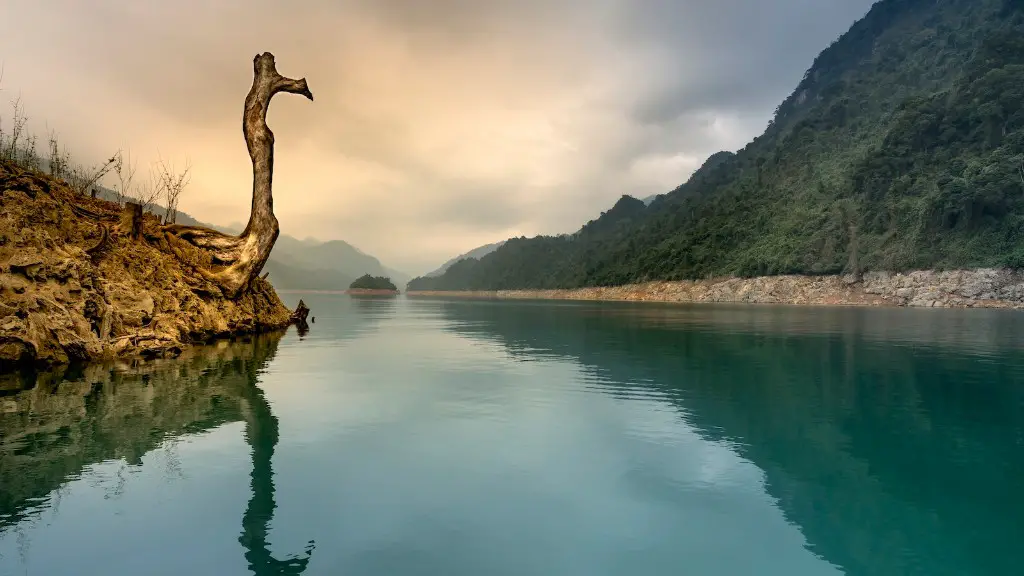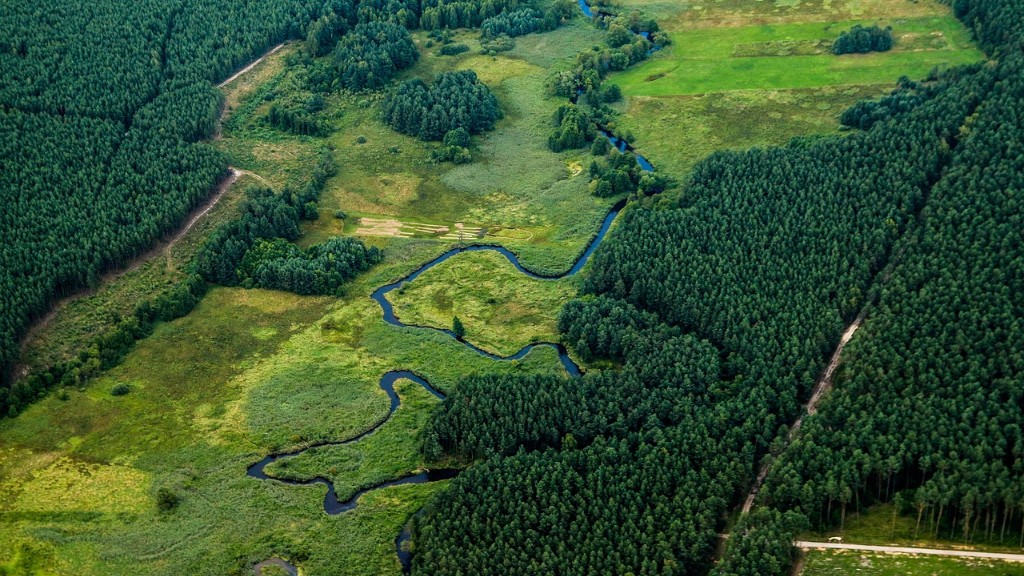Origin of The Mississippi River
The Mississippi River is one of the most iconic rivers in the world, stretching over 2,300 miles from its source in Northern Minnesota to its meeting point with the Gulf of Mexico near the mouth of the river in Louisiana. The source of the Mississippi is Lake Itasca, which drains into the Mississippi River via a short stretch of rapids. From there, the Mississippi River flows south, meandering through prairies, forests, and farmlands, eventually reaching the southern end of the United States and emptying into the Atlantic Ocean.
The Mississippi River has long been an important waterway for trade and communication in the region, providing routes for transportation and access to resources for communities for centuries. Today, the Mississippi River is one of the most heavily used waterways in the United States, carrying tons of cargo each year and enabling millions of people to travel from one place to another.
The Delta
When the Mississippi River meets the Gulf of Mexico, it creates a vast delta, or area of wetlands, stretching from the mouth of the river to the coastline. This delta is comprised of thousands of acres of interconnected rivers and channels, marshes, mudflats and swamps, providing a unique and essential habitat for a wide variety of species. This important habitat serves as a critical source of food and shelter for numerous species of fish, birds, mammals and reptiles.
Further, the delta is a major source of sediment, providing nutrient-rich soil to the surrounding area. This sediment is a critical part of the delta’s success, helping to create a healthy and diverse ecosystem and providing a unique habitat for plants and animals.
Economic Significance
The Mississippi River delta is a major source of economic activity in the region. The delta provides access to countless ports and shipping lanes, as well as providing a hub for oil and gas production, fishing and tourism. Many of the cities near the mouth of the Mississippi have access to ports, railroads and pipelines, helping to support the local economy.
Additionally, the Mississippi River delta is a major producer of seafood. The waters of the delta are home to several species of shrimp, oysters, clams, and other shellfish, providing an important source of income to the local population. These efforts help to fuel the economy and provide employment opportunities for thousands of people in the delta region.
Environmental Challenges
Unfortunately, the Mississippi River delta is facing numerous environmental challenges due to the combined effects of climate change, overdevelopment, and pollution. One of the most pressing issues is coastal erosion, which is caused by a combination of sea-level rise, storm surge, and changes in water flow. This erosion has led to the loss of wetlands, as well as decreased fish and wildlife populations.
In addition, nutrient pollution from agricultural runoff, urban sewage, and industrial waste are harming the delta’s ecosystem. This pollution has led to algal blooms, which can cause hypoxia or “dead zones,” where the oxygen levels in the water are too low to support life.
The Mississippi River delta is also highly vulnerable to storm damage and flooding, both of which can be destructive to the local economy and ecology.
Conservation Efforts
Fortunately, there has been increased focus on protecting and restoring the Mississippi River Delta. A number of conservation and restoration efforts are being undertaken by a variety of organizations, including the U.S. Army Corps of Engineers, the Environmental Protection Agency, and the Audubon Society.
In addition, a number of state, county and private organizations are working together to improve water quality and reduce water pollution. These efforts include the implementation of best management practices, such as reducing runoff and using wetlands to capture and filter runoff, as well as the implementation of restoration projects to restore lost wetlands.
The Mississippi River delta is also the focus of numerous research projects, including long-term monitoring studies and the development of predictive models to help inform future conservation and restoration efforts.
Importance of Healthy Deltas
Healthy deltas, like the Mississippi Delta, are essential for the health of our planet and provide important economic, environmental, and cultural benefits. These benefits are especially important for coastal communities and economies, providing a source of food, livelihoods, and recreation.
It is essential that we continue to protect, restore and monitor deltas to ensure their health and resilience in the face of a changing climate.
Pollution and Contamination
The Mississippi Delta is also subjected to a variety of pollutants and contaminants, which can negatively affect the health of the area and its inhabitants. These pollutants include oil, industrial waste, agricultural runoff, urban sewage, and more. These pollutants can accumulate in the delta’s sediment and water, posing a serious threat to human and ecological health in the region.
To reduce the impact of these pollutants, it is essential that we implement a variety of preventative measures. These measures include the development of best management practices to reduce runoff and pollution, as well as the development of advanced wastewater treatment technologies to reduce contaminants.
Adaptation Efforts
In response to the impacts of climate change, many organizations and communities are developing adaptation strategies to ensure the resilience and health of the Mississippi Delta. These strategies involve the implementation of various ecological and engineering strategies to decrease the risk of flooding and storm damage, the development of buffer zones to protect sensitive ecosystems, and the implementation of conservation strategies to protect shorelines and wetlands.
In addition, comprehensive management plans are being developed to address the impact of climate change on the region, including the impacts of sea level rise, increased storm intensity and more.
The Future of The Mississippi Delta
The Mississippi Delta is facing a number of environmental and economic challenges, but with concerted efforts and commitment to conservation and adaptation, there is hope for a brighter future. If we continue to protect and restore the delta, support local economies, and develop comprehensive management and adaptation plans, we can ensure the continued health and resilience of this invaluable ecosystem.


